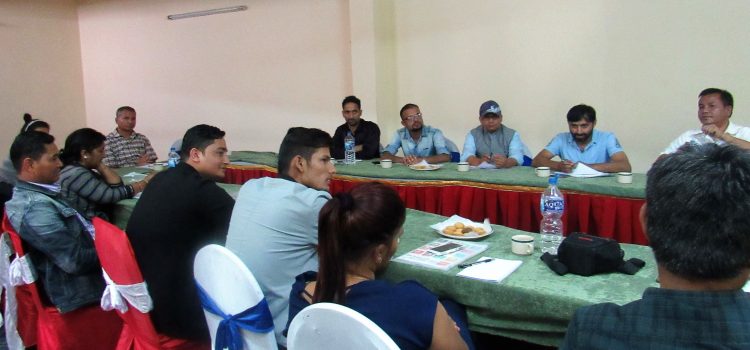One of the mentors of public interest reporting training, Hasta Gurung, also the former president of Center for Investigative Journalists, stressed that journalists should have a clear vision to write a good news story. It helps them to express stories in a better way. Without this, news story is worthless, he argued.
Another mentor of the training, Dharmendra Jha, added that one should be critical on the issue in order to make the issues more impactful; journalists should now use RTI Act as much as possible.
During the review meeting, FF organized an orientation entitled, ‘Review on Public Interest Reporting by Journalist’ on 29 June, a total of 20 participants attended the program where 7 were females. They were orientated to encourage the reporters for strengthening investigative reporting.
In the review meeting, participants from different earthquake-affected areas were present. One of the fellowship participants named Rama Luintel from Bhaktapur expressed that while they were preparing news story, they were conscious about deadline.
The review with journalists was conducted to make the journalists whet their skills to dig more issues. It was an opportunity to share the efforts reporters made for news and the facilitation they needed to better their works.
FF has allocated fellowship to 14 journalists. Each of them needs to publish four news stories within 2 to 3 months being focused on the post-earthquake issues. Out of 52 news stories, 14 stories have been published so far.
The program was organized under the project “Civil Society Mutual Accountability Project (CS: MAP)”, supported by USAID and implemented by FHI360. The fellows are selected from different earthquake- affected areas as Kathmandu, Lalitpur, Bhaktapur, Dolakha, Sindhupalchowk, Nuwakot, Okhaldhunga, Sindhuli and Gorkha.

